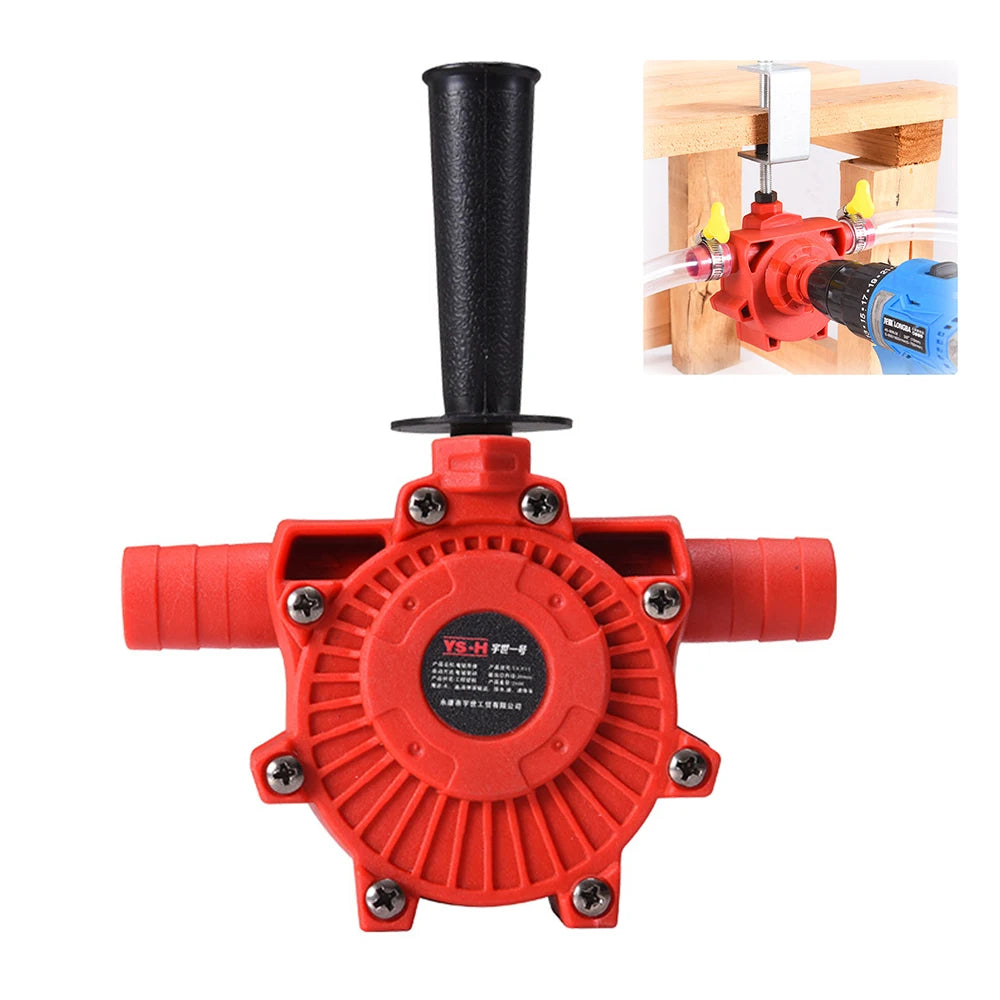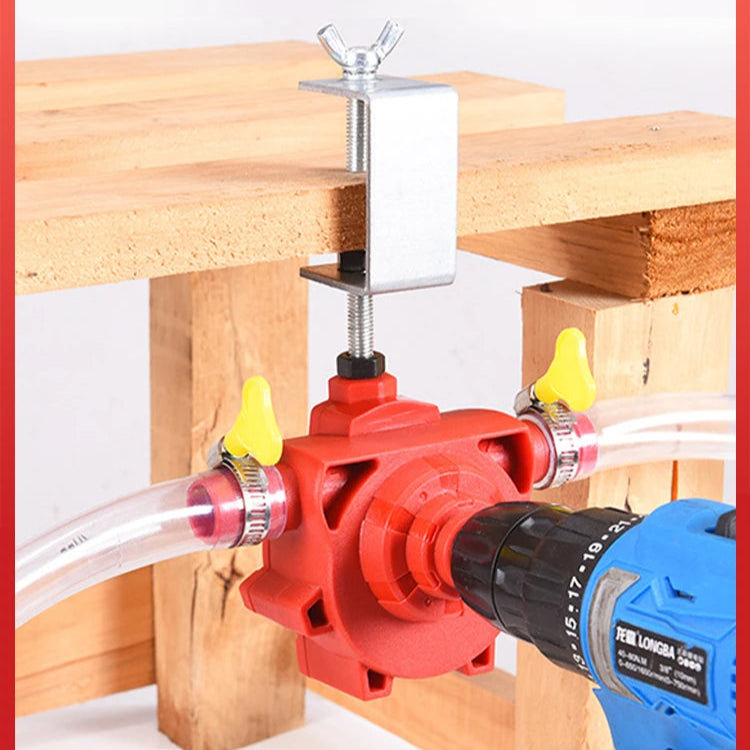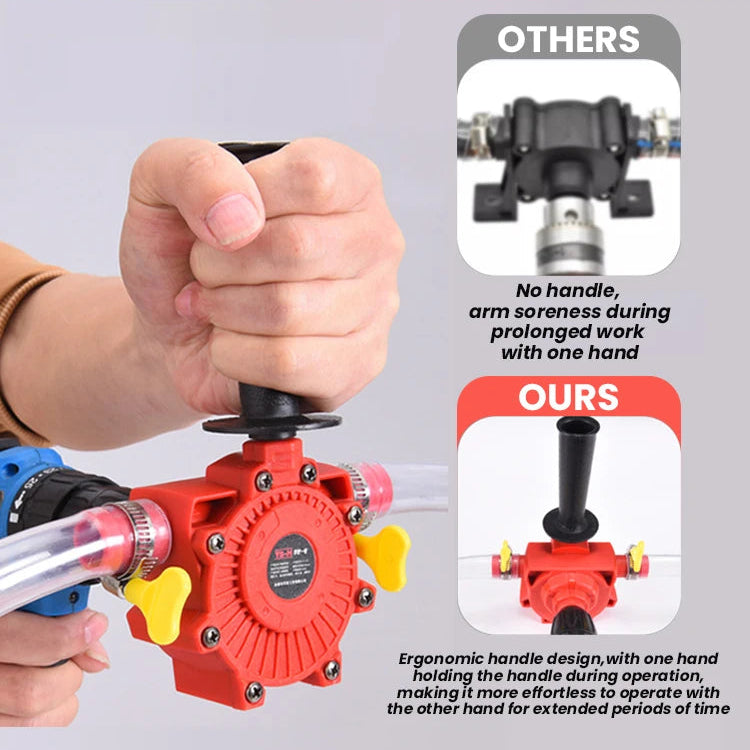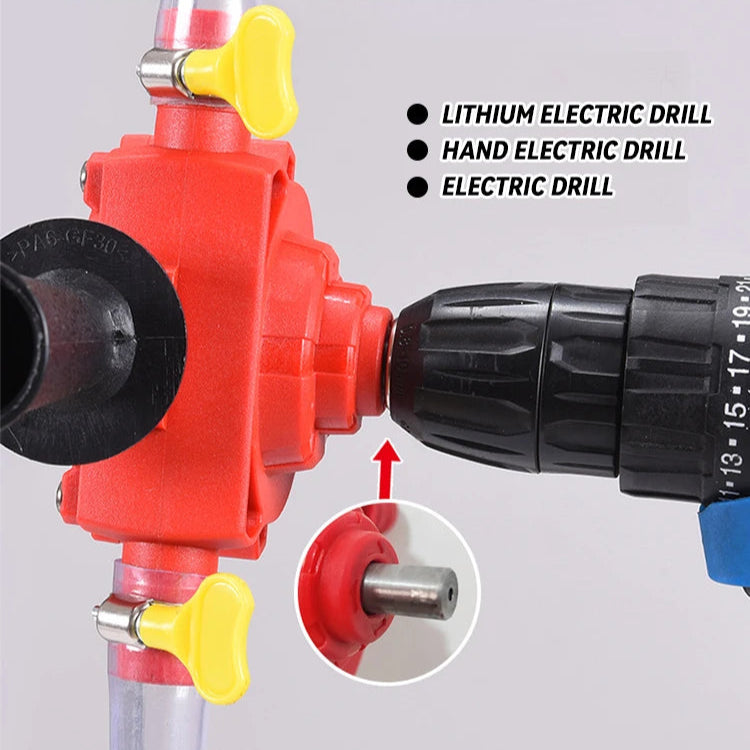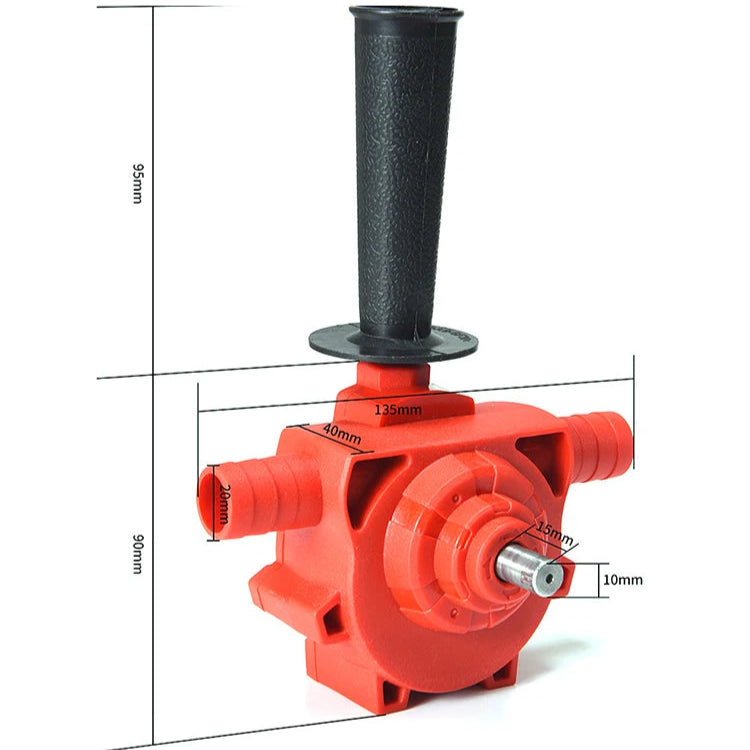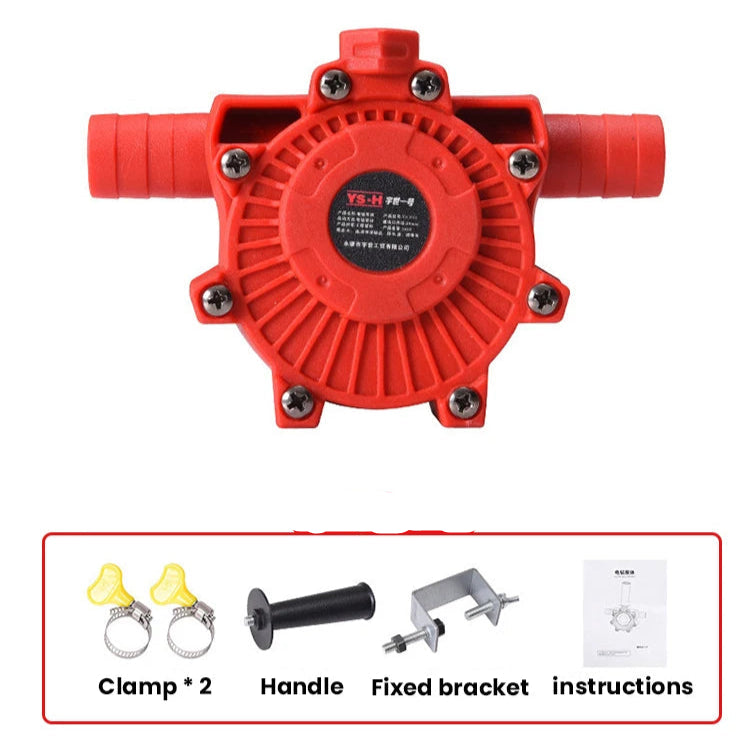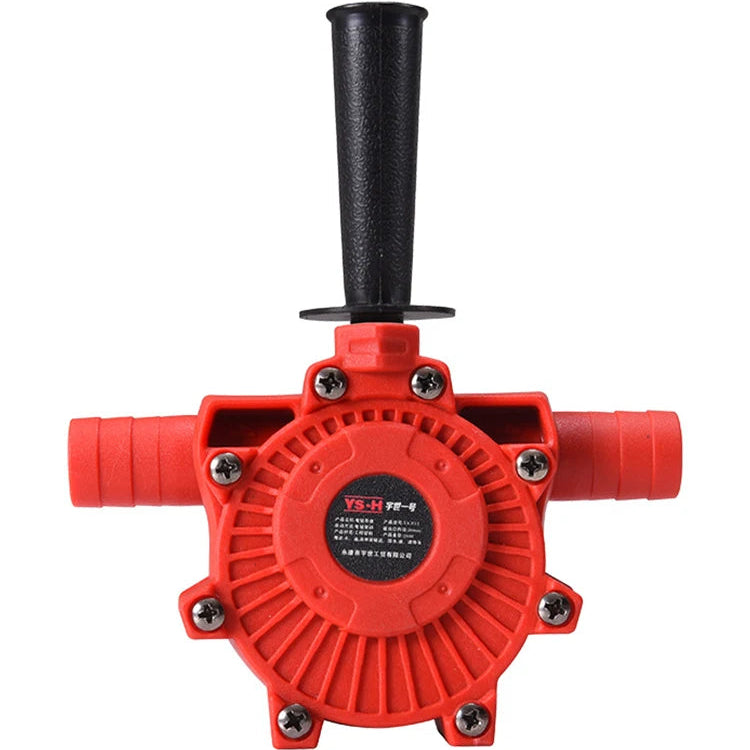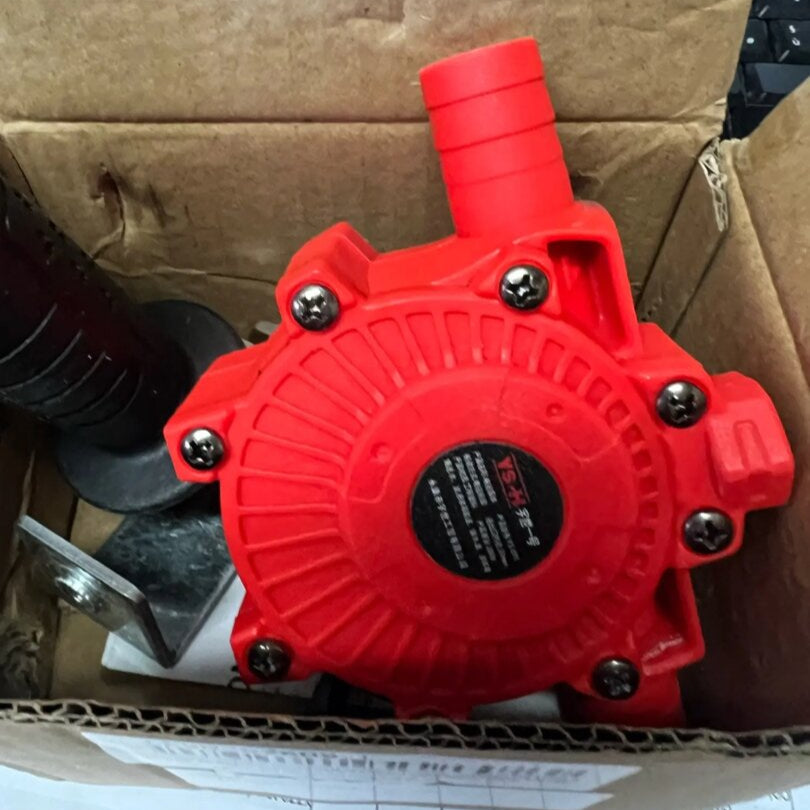Drill-Driven Liquid Transfer Pump
Drill-Driven Liquid Transfer Pump
Couldn't load pickup availability
Technical Specifications
Technical Specifications
🧰 Technical Specifications
Power Source: Electric drill (corded or cordless)
Connection Type: Standard round drill shank
Material: High-impact ABS plastic + steel internal components
Input/Output Size: ~13mm (1/2" hose compatible)
Flow Rate: Up to 3–4 L/min (depending on drill power)
Max Suction Height: Approx. 3m
Max Lift Height: Approx. 15m
Dimensions: Approx. 12cm x 10cm
Weight: Lightweight and portable (under 300g)
Use Cases: Fuel transfer, water pumping, oil changes, tank draining
Turn your drill into a powerful pump.
This self-priming transfer pump attaches to any standard electric drill to move water, oil, or other non-corrosive fluids with ease. No batteries, no wires—just pure DIY efficiency.

Perfect for home projects, garages, gardens, or quick liquid cleanups.
✅ Converts any electric drill into a high-speed pump
✅ Transfers fluids fast with self-priming action
✅ Compact and lightweight—easy to store in any toolbox
✅ Works with most cordless and corded drills
✅ Ideal for water, oil, coolant, or fuel (non-corrosive only)
✅ No power needed—just your drill
📦 Fast shipping. Hassle-free returns.
🛍️ Smart, simple, and surprisingly powerful.
FAQs
FAQs
❓ Frequently Asked Questions
Q: What kind of drill does this work with?
A: It works with any standard electric drill—corded or cordless. The stronger the drill, the faster it pumps.
Q: Can I use this to pump fuel or oil?
A: Yes, it’s suitable for light oils, coolant, and fuels like diesel or petrol. Not recommended for corrosive or high-viscosity liquids.
Q: How do I connect the hoses?
A: Just slide a standard 1/2" hose over the inlet and outlet and clamp if needed. Simple and secure.
Q: Do I need to prime the pump manually?
A: No—it’s fully self-priming. Just start your drill and let it run for a second or two to get the flow going.
